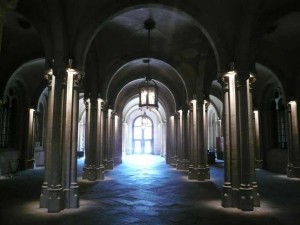I am deeply honored to be invited by la Caixa Foundation to give a talk in “The Greats of Science” talk series, to be held 16 March 2023 at the CosmoCaixa Science Museum in Barcelona. This talk series aspires to host “prestigious figures who have contributed towards admirable milestones, studies or discoveries,” who will bring the science to a general audience, aiming to “give viewers the chance to explore the most relevant parts of contemporary sicence through the top scientists of the moment.” Previous speakers include Jane Goodall and nearly a dozen Nobel Prize winners since 2018.
I hope to rise to those high expectations!

My topic will be: Strategic thinking in infinite games.
Have you time for an infinite game? Many familiar finite games admit natural infinitary analogues, infinite games that may captivate and challenge us with intriguing patterns and sublime complexity. Shall we have a game of infinite chess? Or how about infinite draughts, infinite Hex, infinite Wordle, or infinite Sudoku? In the Chocolatier’s game, the Chocolatier serves up an infinite stream of delicious morsels, while the Glutton aims to eat every one. These games and others illustrate the often subtle strategic aspects of infinite games, and sometimes their downright logical peculiarity. Does every infinite game admit of a winning strategy? Must optimal play be in principle computable? Let us discover the fascinating nature of infinitary strategic thinking.
The theory builds upon the classical finitary result of Zermelo (1913), the fundamental theorem of finite games, which shows that in every finite two-player game of perfect information, one of the players must have a winning strategy or both players have draw-or-better strategies. This result extends to certain infinitary games by means of the ordinal game-value analysis, which assigns transfinite ordinal values










